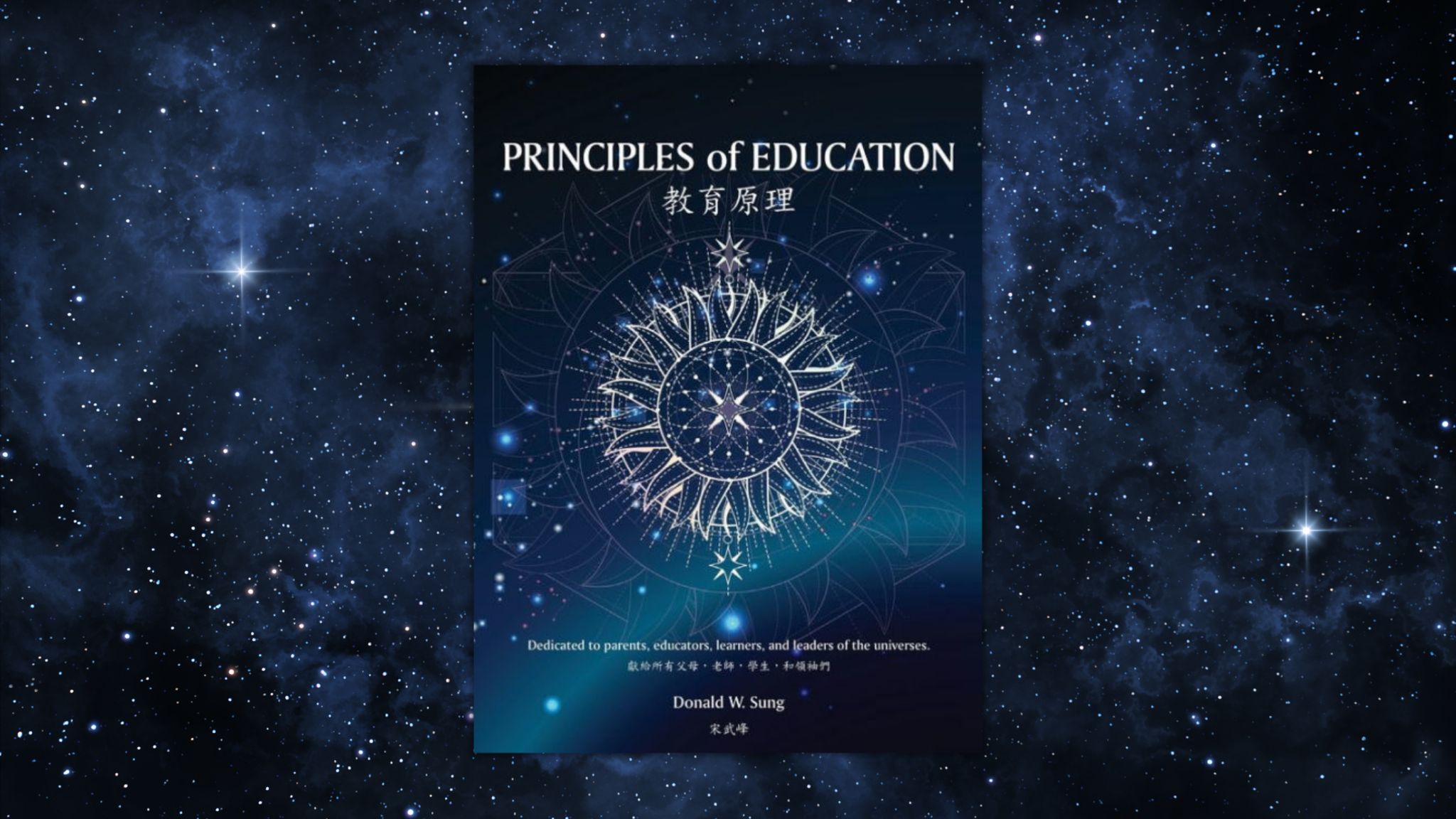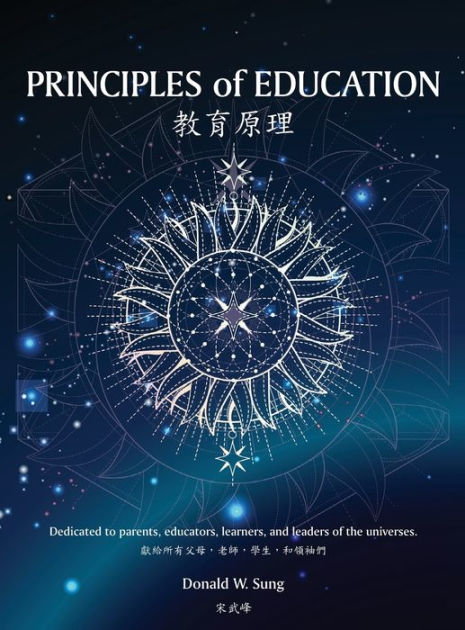
Principles of Education by Donald Sung
What’s it About?
Principles of Education will help readers understand how people learn, guide our children, assess the effectiveness of education, explore the proper and necessary tools for education, and watch children grow.
“The human brain and the human body are very complicated, and so is human education.”
Those are the words of Donald Sung, who believes childhood education is the foundation for people, families, society, and the future of the world. Sung has addressed this belief in his scholarly work Principles of Education, in which he defines and details 81 principles that parents, educators and learners need to consider to maximize a child’s learning.
Together, the principles make up a childhood educational theory that tackles a learner’s conditions, environment, and educational processes.
“The system recognizes that a child’s intelligence, emotions, and social interactions continue to develop in tandem with his growth and bio-physical conditions,” says Sung. “This is a system with dynamic principles, such as the time factor principle, the pursuance of betterment principle, and the latency in a person’s change of physical and mental state principle. These principles may vary with time and should be applied in tandem with the changes in the learner’s condition as well as his learning environment.”
Principles of Education will help readers understand how people learn, guide our children, assess the effectiveness of education, explore the proper and necessary tools for education, and watch children grow.
The book is presented as a blueprint for success and not in traditional narrative form. Rather than get caught up in lengthy and complicated explanations, the work systematically outlines each principle with brief and succinct comments. As Sung notes, each principle could be a book onto itself.
WILL HELP READERS UNDERSTAND HOW TO LEARN
Sung has tried to create a common ground for childhood learning. While every principle should be considered in establishing a system for the learning process, some might be more prevalent in some children, depending on various conditions and assessments. It is for the reader, or educator, to sort through them with this in mind as well as the particular needs of each student.
The principles are divided into three interdependent groups: learner’s state (functions and conditions), learner’s interactions with environment, and introducing a learner to the world.
The principles are all-inclusive and cover a wide range of topics. For example, the Information Management Principle takes an acute look at the different ways children process or use information, and how this affects the learning process. This also helps identify the potential of a person.
Sung also addresses the timing issue, explaining the signs, for example, of when a baby is ready to eat or when a person is ready to learn.
There are many other factors that Sung considers and includes: motive, desire, motivation, trust, comfort and confidence among them.
“Education impacts a child throughout his or her life, which is why this system presents principles, such as maintenance stage principle and conflict resolution principle, that may be consistently applied throughout children’s lives.”
A PREVENTATIVE TOOL
The book is designed as a preventive tool, a guide to help educators avoid potential issues before they arise. It is easier to prevent negative behavior rather than stop it after it already has manifested itself, says Sung.
Principles of Education is recommended for anyone directly involved with or directly concerned with the education of our children. And as you consider that statement, you have to ask yourself: who wouldn’t be.
AUTHOR
Donald Sung is an attorney and C.P.A. Throughout his life, he has been questing and exploring common grounds for people and concluded that childhood education is the foundation for people, families, society, and the future of the world. He is very appreciative of the opportunities and educations offered by society. In this book he shares his principles of education as a giving back to society.

Publish Date: 10/25/2022
Author: Donald Sung
Page Count: 64 pages
Publisher: Barnes & Noble Press
ISBN: 9798823131148





























:quality(85):upscale()/2026/02/18/893/n/1922564/857ece5a69962087501ab8.98904531_.jpg)






